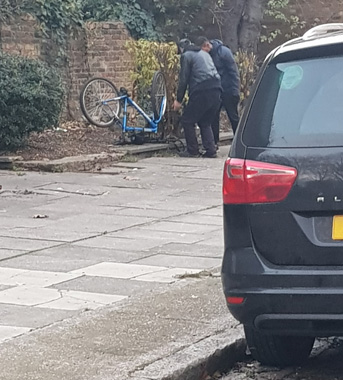The UK Government is ‘committed to delivering meaningful and fair consequences for those who use illicit drugs and have progressed work to ensure that the anti-social behaviour that impacts on people’s quality of life and neighbourhoods is dealt with robustly’, according to a first one-year update on the Government’s ten-year, Boris Johnson-era drugs strategy. The document says Government will fund a number of police forces to expand their use of Out of Court Disposals (OOCDs).
Besides forewords by Government ministers, Dame Carol Black, Independent Adviser to the Government on Drugs said: “For these reforms to make a difference to those misusing drugs, and the communities affected by serious crime and social disruption, it is vital that at both local and national level we continue to work ever more closely in partnership, to ensure that people in treatment progress to a sustainable recovery pathway.”
Her Independent Review of Drugs in 2021, in the words of the report, ‘set out the scale of the problem’ and made ‘practical recommendations to repair the system’. Six Government departments – the Home Office, Ministry of Justice, and Departments of Health and Social Care, for Education, for Work and Pensions; and for Levelling Up, Housing and Communities – are at work on what the report terms a ‘whole-of-government approach’.
The report stresses equally breaking of the supply chain of illegal drugs including ‘county lines’ dealing; and treatment and recovery. The strategy also seeks ‘a generational shift in the demand for drugs’, as around three million people in England and Wales report using drugs each year. However it admits that the health and social care sectors are ‘experiencing workforce shortages (especially for key professional roles such as doctors and psychologists), which is impacting our ability to expand high-quality treatment and recovery services at pace’.
As a sign of how wide-ranging the problem of drugs in society is, the document includes drugs in prisons; and contraband conveyed by staff. The Government has ‘enhanced checking processes by introducing credit and social media checks of staff, to reduce corruption and smuggling of drugs into prison’. While the percentage of prison leavers with an identified substance misuse need who engage with community treatment within three weeks of release now stands at 40.7pc, an increase from 36.1pc since the drugs strategy funding was put in place, the document describes this as ‘much lower than it should be’.
As for universities, the document says that a proposed expansion of messaging to students at university ‘has been paused until multi-year funding can be identified’.
Besides drugs smuggled into the country, the document states that organised crime groups (OCGs) ‘are misusing pill press machinery to manufacture harmful drugs such as ‘street’ benzodiazepines, which are being sold across the UK and causing significant harm, particularly in Scotland’. On the crime behind the drugs trade, the document says that murders ‘have returned to pre-pandemic levels with the proportion that are drug-related remaining stable’.
You can read the 42-page document at https://www.gov.uk/government/publications/from-harm-to-hope-first-annual-report-2022-to-2023.
In its recent national strategic threat assessment, the National Crime Agency (NCA) said that drug use, drug seizures and drug offences continue to increase within the UK with a total annual cost to society of over £21 billion.
Comment
Joy Allen, Association of Police and Crime Commissioners (APCC) Joint Lead for Substance Misuse, said: “Many offenders commit crimes as a means of supporting addictions – whether that is to illegal drugs, alcohol or problem gambling. The criminal justice system has a key role to play in ensuring they are challenged and supported to address these dependencies, get their lives back on track and stop offending.
“We welcome the 8pc increase in referrals into treatment from the criminal justice system and the 4.5pc rise in the number of prison leavers who continue their treatment post-release. This is a good start, but we need to build on it – too many people are still stuck in a cycle of addiction and offending, and too many who start to address drug dependencies in prison are not continuing that journey on release.
“We welcome the focus on this issue, including the investment in new health and justice partnership co-ordinators in our probation services. As PCCs we are uniquely well-placed to join up criminal justice services and link them into health and other partners – for example, as chairs of local Criminal Justice Boards.”
Meanwhile the SNP Government in Edinburgh recently suggested decriminalisation of all drugs for personal supply progressed as part of a wider review of drug laws.
Photo by Mark Rowe; drug deal on street, winter afternoon, east London.









